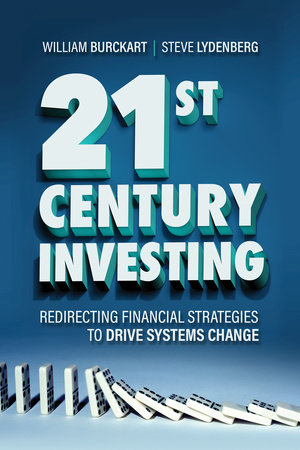Written By:
Taylor Smith ’22
Content Editor
Connect with Taylor on LinkedIn
Students in UVM’s Sustainable Innovation MBA (SI-MBA) program have taken control of the newly established SI-MBA Impact Fund. This donor-supported investment fund is committed to promoting the electrification of the U.S. economy. The fund is built around an emerging school of thought termed “system-level investing.” This approach acknowledges the interplay between the investment decisions made by individuals and the underlying social, economic, and environmental systems that ultimately drive U.S. financial markets.
Conventional investment approaches have a history of degrading our foundational systems in the pursuit of quarterly profits. Ever since the economist Milton Friedman embedded the concept of shareholder primacy1 in the 1960s and 1970s, profit maximization has been the aim of most corporate decision making. Even as our systems show the effects of degradation, it has been difficult to popularize a new paradigm of investment theory.
1Shareholder primacy is a form of corporate governance that focuses on maximizing the value of shareholders before considering the interests of other corporate stakeholders, such as society, the community, customers, employees, and the environment.
In 21st Century Investing (2021), William Burckart and Steve Lydenberg explore the emerging school of system-level investing. A key recognition of this investment approach is that we are not passive participants in capital markets. Our collective investments depend on, and influence, the long-term health of our underlying shared systems. The upshot is our investment decisions can support the health of our institutions and the environment. For instance, strategic investments in renewable energy diversify our electric grid and improve resiliency, but also reduce many social, environmental, and financial costs associated with pollution and climate risk.

System-level investors also recognize that various asset classes are inherently suited to tackle specific types of challenges. Fixed income government assets (bonds) can be used to construct public works. Equities (stocks) provide voting power and can influence long-term initiatives within large publicly traded firms. Venture capital investments can empower new start-ups that disrupt established industry players. Investors can participate and magnify their impact by funding the asset classes that maximize societal benefits in their chosen arena. Tactical groups of investments across several asset classes can work collectively to solve critical problems.
System-level investing confronts the problems of short-termism head-on. As Burckart and Lydenberg note, “Investors with long-term time horizons…recognize that the further out they look, the more their interests and those of society coincide. The greater their commitment to a long-term approach, the more they value the health of underlying systems.” System-level investors recognize a simple truth; to maximize returns in the long run, the underlying systems must be sustainable. Otherwise, the system breaks down. It is no surprise that many pension funds, such as those supporting workers in California (CalPERS), Quebec (CDPQ), and the Church of England, are drawn to a systems approach.
Few issues rise to the level where a systems approach makes sense. According to Burckart and Lydenberg, appropriate issues are those that have achieved widespread consensus as to their systematic importance, are broadly relevant to investment returns, are capable of being influenced by investors, and have long-term uncertainty. Issues that meet this threshold include climate change, income inequality, access to fresh water, and future pandemics.
In the SI-MBA program, student analysts, faculty advisors, and alumni practitioners are working to address our chosen theme: the full electrification of the U.S. economy. This theme was selected in support of UVM’s strong commitment to climate action. Embedded within the U.S. power grid are the diversified categories of 1) energy creation and distribution, 2) energy storage, and 3) energy consumption. Teams of students are collaborating to search for best-in-class, innovative public companies within each of these divisions that are helping to accelerate the U.S. energy transition. The energy grid is being considered at a global level, from the mining companies that extract heavy metals for battery and solar manufacturing, to the marketers who influence cultural trends and spending habits.

SI-MBA students are committed to driving sustainable change across diverse fields: energy, education, public health, and many others. Thanks to UVM’s donors, those interested in pursuing careers in finance and analytics are gaining real world experience, with a chance to support systemic change long before graduation. While the SI-MBA Impact Fund isn’t likely to disrupt financial markets on its own, we are supporting a growing community of sustainable finance professionals. Collective action is essential for scaling impact.
We know that financial professionals can use a system-level investing approach to create societal benefits without sacrificing financial returns. Bolstering the health of underlying social, financial, and environmental systems creates a rising tide of investment opportunities for all. Before long, conventional investors will choose to ride the wave.
